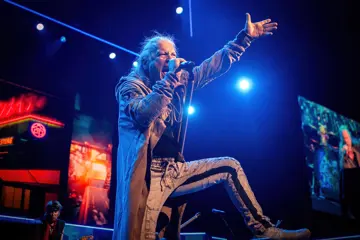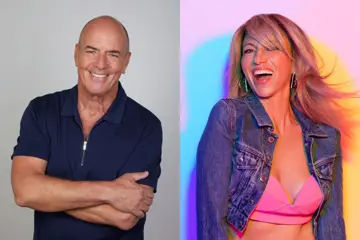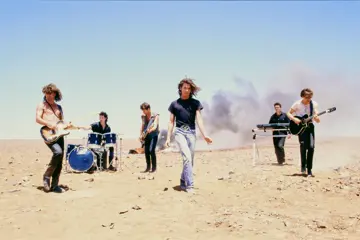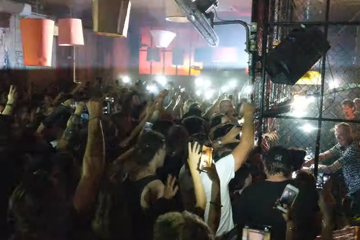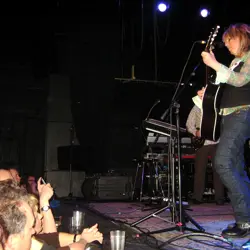 Lucinda Williams
Lucinda WilliamsSince her mother's death in 2004, Lucinda Williams has found herself constantly writing and producing music at a much faster rate than ever before. As such, 2014's Down Where The Spirit Meets The Bone was a double album but as Lucinda reveals, much of her next album was also recorded at the same sessions.
"We got on a roll and went in the studio, a small independently owned studio a comfortable distance form where we live. It was such a comfortable situation and we could come and go between touring, over a few months. We had such a good time and we had great musicians in there. We also cut some covers so it wasn't all my songs. For instance on one occasion Lou Reed had just died the previous day and I'd always love Pale Blue Eyes so we just cut it. There was a lot of spontaneity that was really cool. We cut like 40 tracks so we'll have to sit down and decide what we want to put on the album," ponders Williams.
"My mother had just died and I wanted all those songs to come out at the same time but they didn't want to do that for business reasons.
Much of that flexibility and the creative control of her music comes from Williams and her husband/manager Tom Overby establishing their own record label Highway 20 Records. It was established initially to release Williams' own music, but she hopes they can also sign other artists to the imprint.
"We'd like to do that at some point. Were just getting it off the ground as it's all new. We're still with Thirty Tigers [marketing/distribution] but we wanted to have our own control to do our own thing and sign other artists. That's one of the differences now compared to when I was on Lost Highway who were owned by a major. At the end of the day I had a lot of creative freedom but for example when the West album came out I wanted that to be a double album. My mother had just died and I wanted all those songs to come out at the same time but they didn't want to do that for business reasons. Now we can just do whatever we want. I cut a cover of an old gospel song recently with these two amazing reggae musicians and we just got on this roll. Along with our guys we just went on and on for 19 minutes and everyone was saying, 'Don't cut it, don't cut it.' I said, 'We can't put it on the album, it's too long,' and Tom said, 'No, we're putting it on.' That's going to be interesting, you could never do that in the past," Williams enthuses.
Don't miss a beat with our FREE daily newsletter
Williams is a keen collaborator and always involved in extra curricular activities like duets and tribute albums. One recent experience played an important role in creating another compositional tool that fed back into her songwriting process.
"Last year I was involved with the tribute album to Karen Dalton [Remembering Mountains]. I had known about her and the guy who runs the label had all women involved and sent each of them lyrics that Karen had written. Some were finished, some weren't. Many were just fragments but none of them had melodies. It was pretty challenging to go into something like that and arrange it and get a melody but I managed to do it. Shortly after that the Down Where The Spirit Meets The Bone tracks were recorded and its title is a line from a poem of my dad's. Tom was asking if there was any way I could work that into a song. The point is that because I'd already done the challenging Dalton thing I thought, 'Yeah, I can do this, I've already had practice.' I sat down with the poem and figured it out. That was a good exercise and now I've done another of my dad's poems called Dust that I've turned into a song and we've recorded it for the next album. Now I felt like, 'Wow, maybe I can do some more of these.' It can be really quite difficult to sit down with a poem and turn it into a song because they are really quite different animals, you know."
Many songwriters thrive on the autobiographical and honest nature of their songs. Others clearly create fictitious worlds and scenarios, but for Williams there is no question that her songs must always be completely real. Nothing is ever held back.
"No, not because they're too personal. If I don't release them it's just because they haven't worked out. I might carry them over to the next album. You never know why that is, sometimes it's just timing. Nothing is ever too personal."


